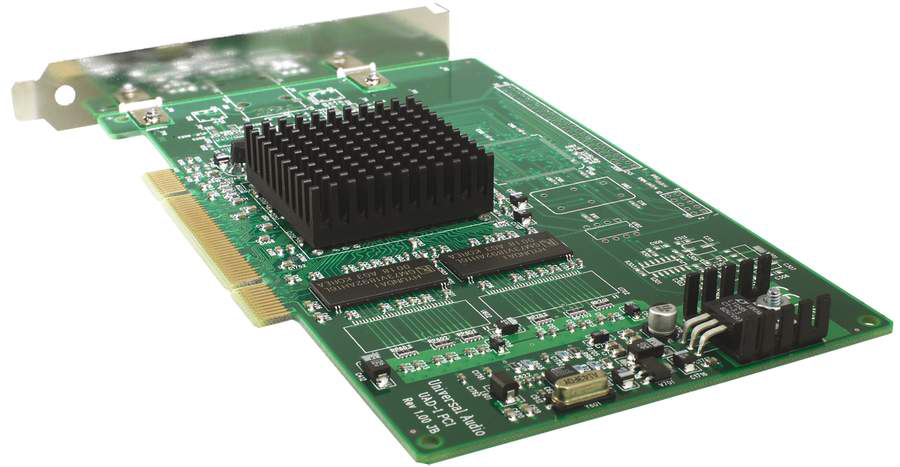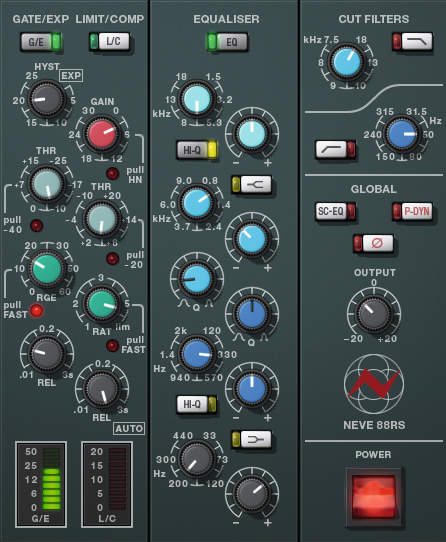MusicRadar Verdict
The UAD platform itself might be knocking on a bit but its plug-ins are still the business. The 88RS is no exception, thanks to its exceedingly musical Neve tones.
Pros
- +
Sounds top-notch. Responsive interface. DSP individually allocated to each process. Cross-platform support.
Cons
- -
Expensive for one plug-in. No external sidechain. UAD card required.
MusicRadar's got your back


If you like your plug-ins to have a retro vibe, you can't go far wrong with Universal Audio's UAD card. With some fantastic recent additions from Helios and Neve, this six-year-old platform seems to be going from strength to strength.
The latest software version (4.7) offers two new plug-ins that you can demo and then potentially buy: Universal Audio's LA-3A Audio Leveler, and the Neve 88RS channel strip. The latter of which is on our test bench. The plug-in is an emulation of AMS Neve's current large format analogue desk strip, a design that draws on years of experience to deliver a 100% old-skool analogue sound. The 88RS includes all the in-line processing elements of a channel strip - EQ, compressor, gate - but leaves out the bus and mic input bits you'd see on a desk. Having the layout arranged into three sections - dynamics on the left, EQ in the middle and master controls on the right - means it's more akin to a modular rack.
Features
The dynamics section includes the full array of processing, from gate and expander functions to limiting and compression. In typical Neve style there are plenty of switches, including the push/pull knob functions.
The dynamics processors are simple to use, and it's great having LED metering. The overall sound can be subtle or extreme, but remains impressively responsive. The only downside is that there's no external sidechain option.
The EQ (AMS-Neve's Formant Spectrum Equaliser) is a four-band design with two fully parametric mids, and high and low bands (switchable between shelving and bell-shape). As modern plug-ins go, it looks a little underwhelming, but Neve EQ is all about the sound, which shines here.
Verdict
Want all the hottest music and gear news, reviews, deals, features and more, direct to your inbox? Sign up here.
The EQ behaves differently depending on how much gain you add - the sound ranges from smooth and enhancing to full-on. With few numbers and slightly odd labelling, you're required to use your ears. Even so, you'll struggle to go wrong with this EQ, and although it may lack the clinical edge of a modern digital design, it makes up for it by sounding great.
Things are rounded off by the final module section, which includes high- and low-pass filters, phase reverse, level trim and a couple of signal flow options. One of these (SC-EQ) enables you to sidechain the dynamics with the EQ'd signal - useful for de-essing.
With software emulations pretty much becoming the standard for plug-ins, slavishly copying established hardware could appear to be slightly lazy. But certain bits of gear are successful for a reason, and Universal have made a wise choice here. Overall, the Neve 88RS is another top plug-in for the UAD platform.
MusicRadar is the number 1 website for music makers of all kinds, be they guitarists, drummers, keyboard players, djs or producers...
GEAR: We help musicians find the best gear with top-ranking gear round-ups and high- quality, authoritative reviews by a wide team of highly experienced experts.
TIPS: We also provide tuition, from bite-sized tips to advanced work-outs and guidance from recognised musicians and stars.
STARS: We talk to musicians and stars about their creative processes, and the nuts and bolts of their gear and technique. We give fans an insight into the actual craft of music making that no other music website can.
